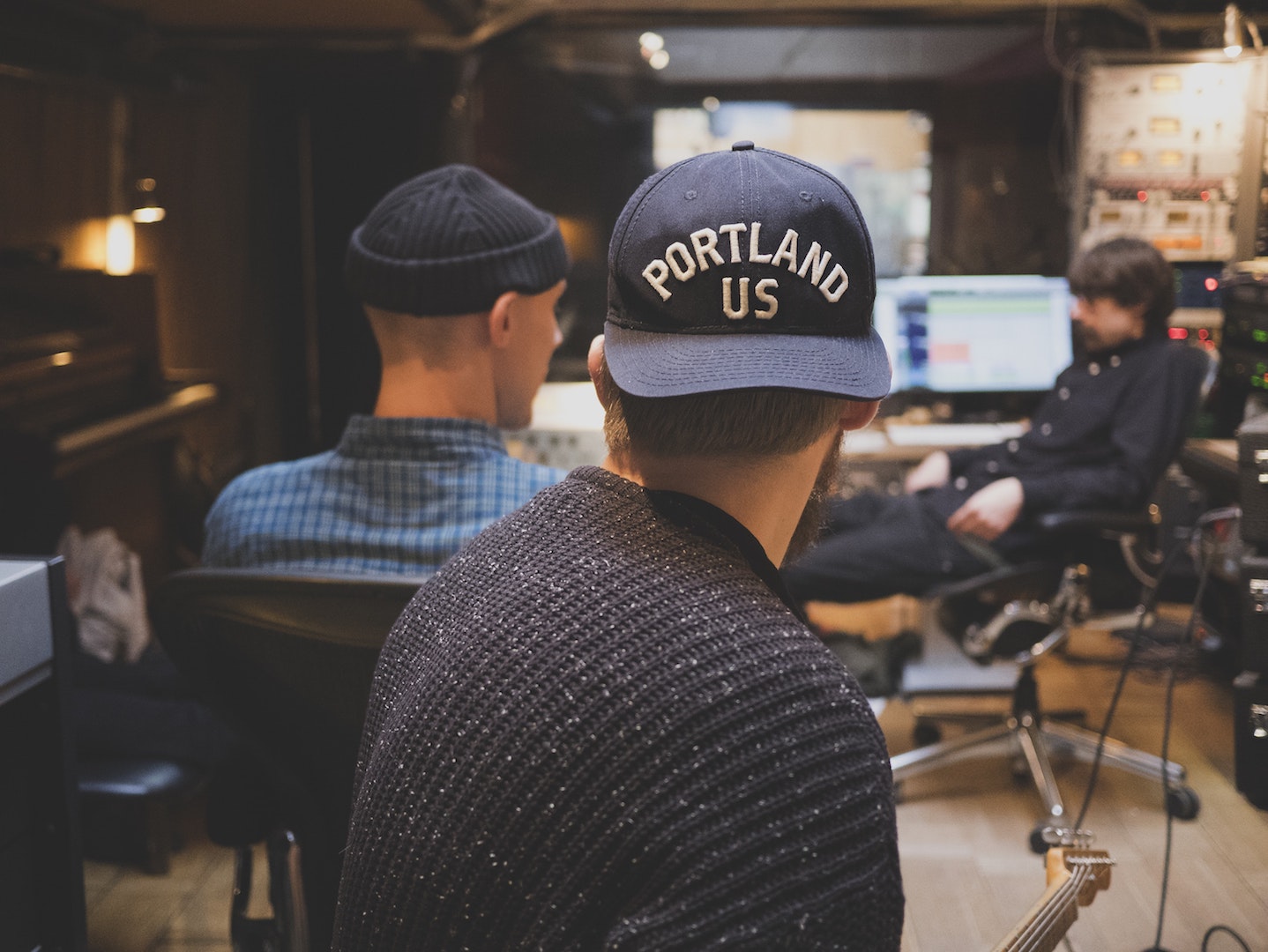Can you turn a hobby into a business?
The year was 2001 and I was 12 years old. Daft Punk had just released their seminal album, Discovery. Tracks like “One More Time” and “Aerodynamic” were about to change the shape of electronic music forever.
My brother’s friend introduced me to electronic music production with Steinberg’s Cubase VST. This was the first serious digital audio workstation (DAW) that made it possible for bedroom producers like me to create professional-sounding tracks. Over the next several summers, I made beats, learned mixing, and played around with electronic synths–all for fun, of course.
Today, I run a business that helps talented amateur musicians mix and master their tracks. Today the hobby I spent hundreds of hours perfecting pays my bills–and then some. Over the years I’ve learned a great deal about what it takes to turn a hobby into a business. If you want to do the same, here’s a look at how to validate the viability of your hobby, find clients, and go from freelance to full-time.
1. Every hobby isn’t a viable business
If you have a serious hobby, you’ve undoubtedly heard from friends that you should go pro and start charging what you’re worth. While your friends mean well, the truth is not every hobby has enough demand to sustain a profitable business. Some hobbies are too obscure to land enough customers. Others have no clear commercial value.

I faced similar doubts when I first started freelancing as a producer. I had helped friends with their tracks for years, but I was never sure if anyone–let alone strangers–would pay me for it. To assuage my fears, I tested the viability of the business model. Here’s how you can do the same:
Evaluate keyword data
Evaluate keyword data related to your hobby. Look for two things:
-
How many people conduct an online search for your target keywords?
-
How much are advertisers paying to advertise on those keywords?
Plug this keyword data into a tool like Ahrefs or KeywordTool.io. For example, according to Ahrefs, over 2,000 people search for the keyword phrase “online mastering” in the U.S. alone each month. These same people click on nearly 2,800 ads, each click costing $3.50. This means on average, advertisers pay ~$10,000/month just to show up for one keyword in one location.
Evaluate related businesses
Competition is always a good sign: it shows there are other people making a living off your hobby. Start by searching Google for “[hobby] + companies.” Look for businesses that have your hobby keyword in their page title.
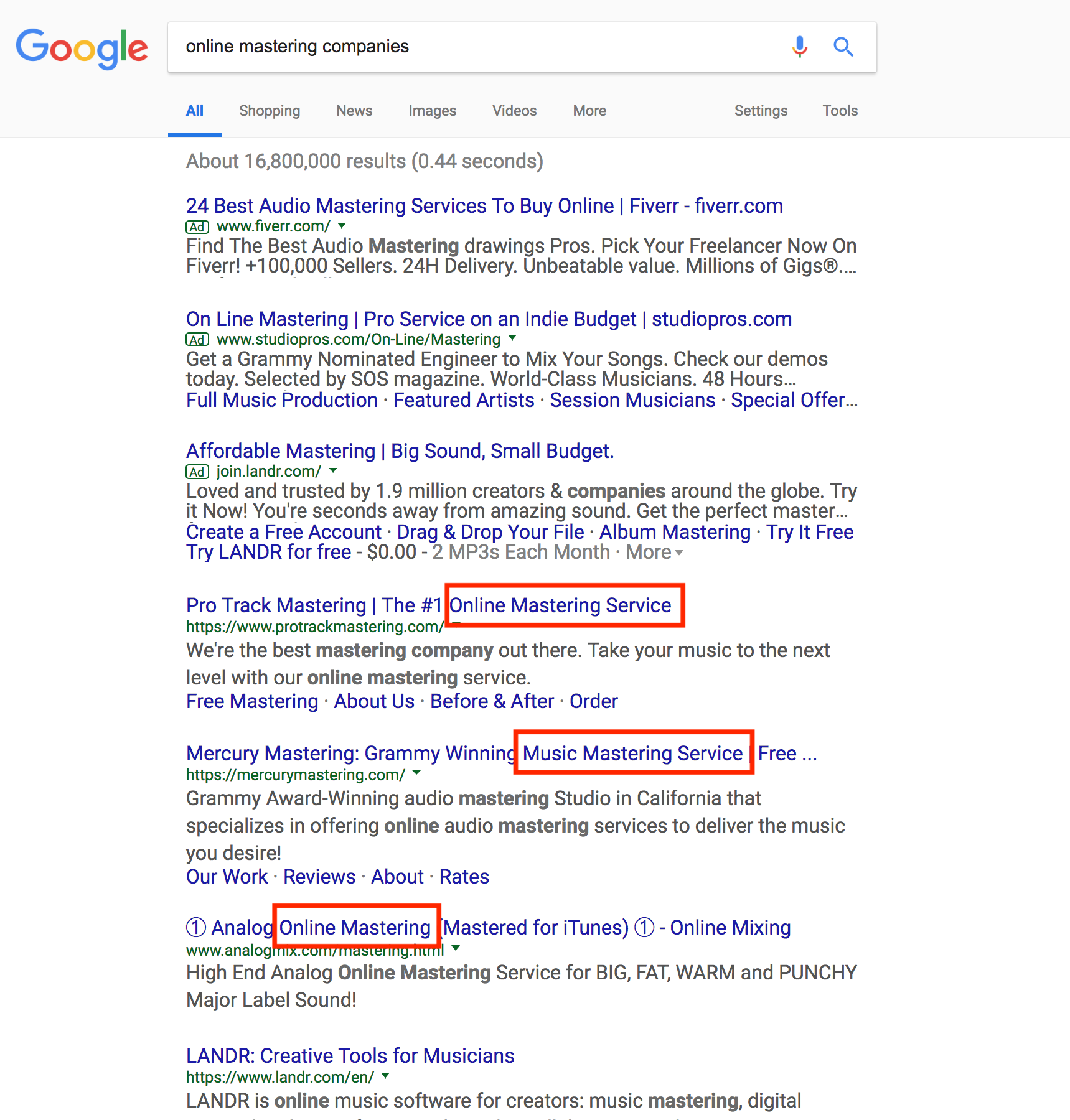
Another alternative is to search CrunchBase for your hobby keyword. For example, when I search for the keyword “crochet” I see there are more than a few companies built around crocheting. Since CrunchBase usually focuses on venture-backed, funded startups, this even means that crocheting is a lucrative hobby.
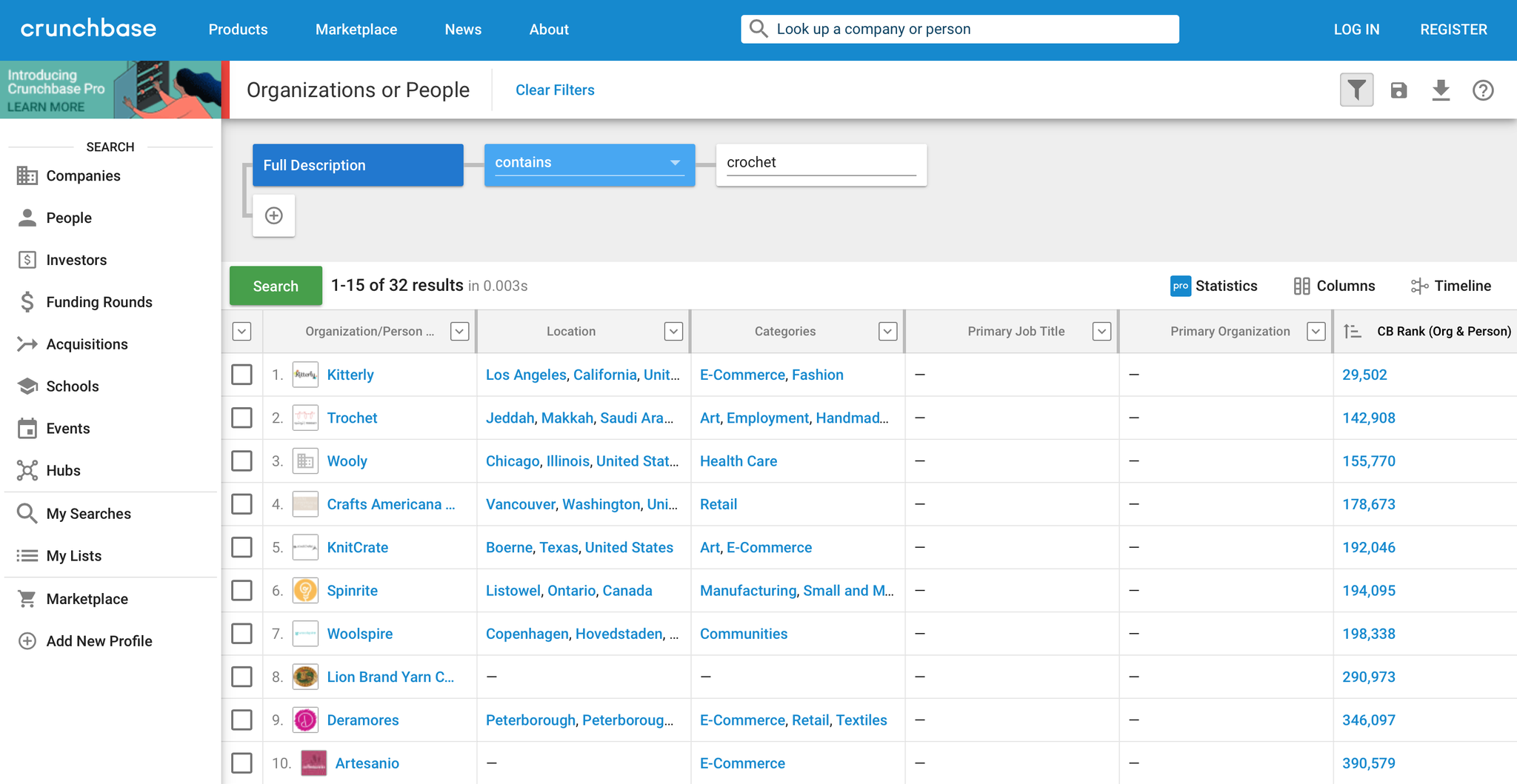
Once you have enough validation to assess the viability of your hobby as a business, you can start testing your offerings.
2. Understand customer demographics and motivations
When I started MIDINation, I priced my services at the same rate as a professional studio producer or audio engineer. I had worked with artists and labels who would drop thousands of dollars to master a track. I assumed I should be able to charge the same online prices. Big mistake!
I quickly learned, my online customers had very different expectations from a mixing and mastering service. For one, they weren’t label-backed, professional musicians. Most were amateur musicians trying to get their tracks to sound better for a demo. Many were even in their teens with no disposable income. By pricing my service in the hundreds of dollars, I killed my business before it even started.
In hindsight, this was a clear case of customer myopia. This is when you focus so much on the product or service that you forget the most important thing in your business: customers. I was so sure my mastering service would help musicians that I didn’t realize most couldn’t even afford it.
This is why I urge all entrepreneurs to fully get to know their ideal customers before setting prices. Start by using Facebook’s Audience Insight tool to look up your competitors. Check their demographic data, especially incomes and age. But a demographics assessment isn’t enough; you also need to understand why customers want to buy your product or service.
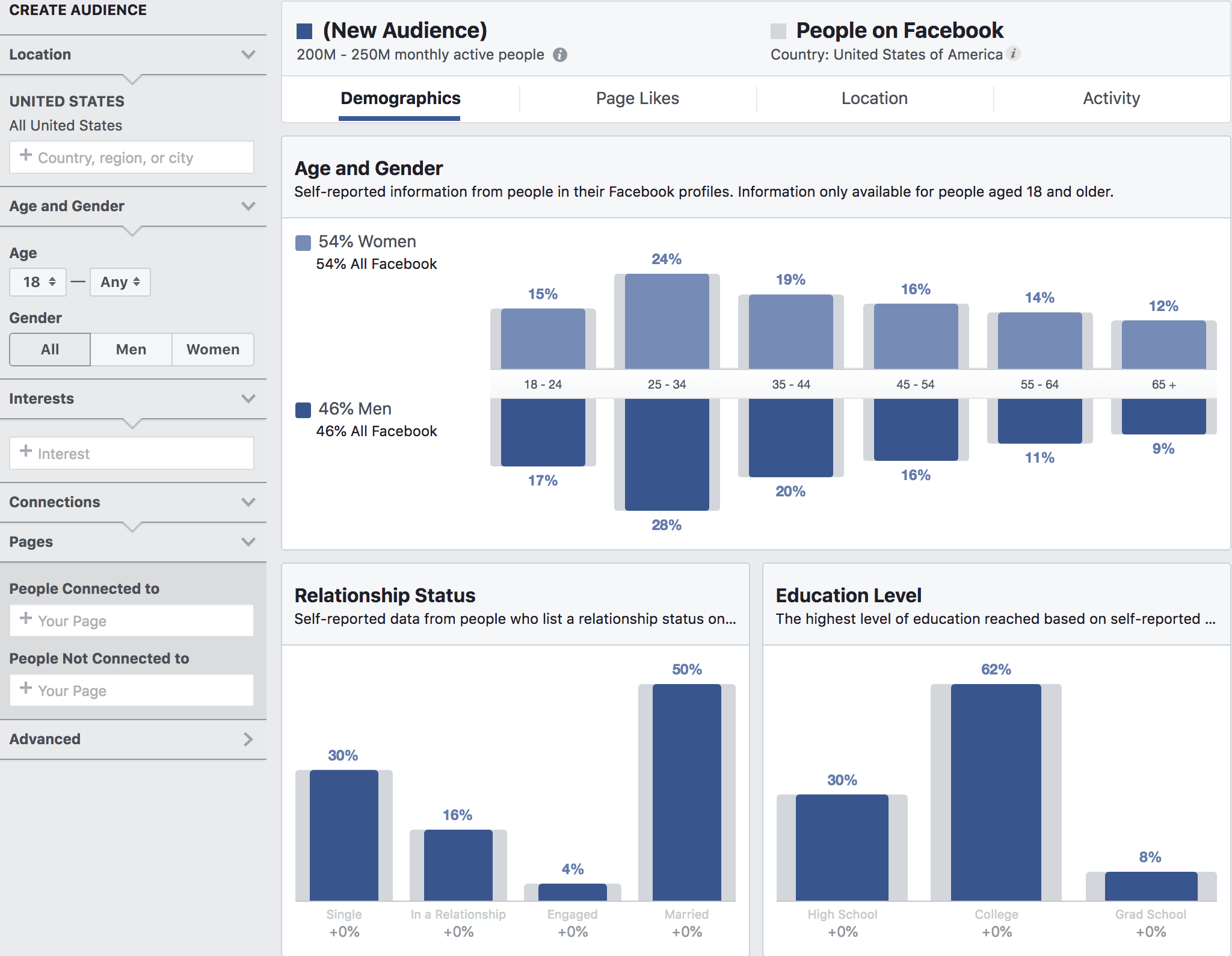
Survey real people who might be interested in your offering. Online forums and targeted sub-reddits are some of your best platforms to gather free insight. Ask users why they need or want your product/service? What is their primary motivation?
In my case, I discovered most people wanted to master their tracks so they could compile demos and send it to labels. Neither they, nor the labels expected studio-like sound. It didn’t matter to them if the mastering wasn’t 100% perfect. As long as it sounded better, they were fine with it. This helped me adjust my service to a lower price point. I also pivoted the way I mastered tracks. Instead of spending hours to perfect the sound, I developed quick workflows to master tracks until they were good enough.
3. Test the waters before you dive in
If you’ve been in startup circles over the last few years, you’ve undoubtedly heard of the lean startup model. First used by Eric Reis, this model focuses on testing demand for a product/service by creating a minimally viable product (MVP). This MPV is the cheapest product that you can build and monetize.
Without even knowing it, I’d used the lean startup model to test demand for my service. Here’s how I did it:
I used Unbounce to create a simple landing page to offer my mixing/mastering services. You can also use free WordPress landing page templates that are widely available online. I didn’t bother with A/B testing, copywriting, or fancy graphics. Instead, I focused on driving targeted traffic to my page.
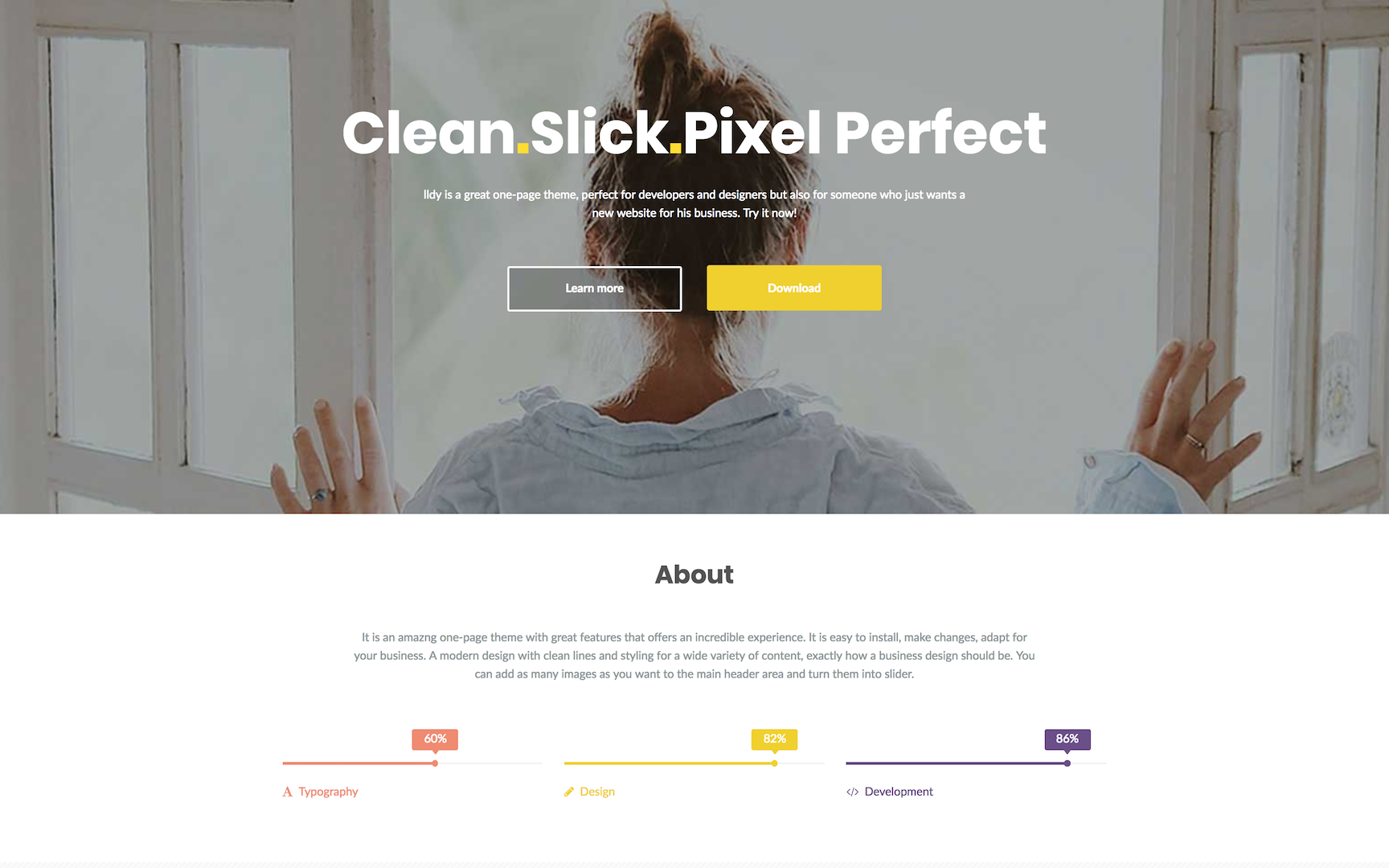
To do this, I searched for YouTubers that create music production tutorials. I categorized their videos and channels on the basis of their expertise level–beginner, intermediate, and advanced. Since mastering is something you do after a track is finished, I saw no point in targeting videos with beginner-level content.
Once I found 10 videos with intermediate or advanced level content, I reached out to the creators and asked them to advertise a link to my landing page. I purposefully picked smaller channels with under 20,000 subscribers. My goal wasn’t to get volume, it was to evaluate the viability of my offer at a minimum possible cost. Even though I didn’t break even on this campaign, the fact that people bought the service meant the idea was feasible.
Over to you
There are few better businesses to run than one centered around your hobbies. After all, you’re already doing it for free–why not get paid for it?
If you’re thinking of taking the plunge, there are a few things you should do before you start. Follow the tips I shared above to make sure your hobby makes for a viable business.
What about you? Are there any hobbies that you wish you could turn into a business? Share your thoughts in the comments below!
Ryan Harrell used to be a marketer, but now he is a full-time music producer, helping amateur musicians create better sounding tracks. Read his blog at MIDINation.com. Connect with @midination on Twitter.
© YFS Magazine. All Rights Reserved. Copying prohibited. All material is protected by U.S. and international copyright laws. Unauthorized reproduction or distribution of this material is prohibited. Sharing of this material under Attribution-NonCommercial-NoDerivatives 4.0 International terms, listed here, is permitted.
